
How Emotions Are Made: The Secret Life of the Brain
by Lisa Feldman Barrett
“Uncertainty means that things can be other than they appear. This realization brings hope in difficult times and can prompt gratitude in good times.”
This is an amazing book to read. It was quite over my head at points but Lisa has done a fantastic job and explaining the theories as to how emotions are made. The main elements of this book which I think is absolutely amazing to ponder is that number one – the brain is constantly predicting our future, and number two – we are the agents of the reality we live and the destiny we create.
Lisa tackles the constructionist theory of the brain backed by research from the disciplines of psychology and neuroscience. She really explains her theories well and for novices like myself, this is very beneficial. I now have a very basic understanding of this field of study and this constructionist worldview. I will do my best to explain what I have learned.
When I interviewed Lisa on my podcast I felt like I didn’t do the interview great justice. I wish I had read this book first because it really put the concepts into better understanding and perspective and that might have improved the quality of the questions that I asked her. It is what it is. A lesson for future guests perhaps. You can have a listen to our conversation here.
The first concept says that the brain is constantly predicting our future based on the concepts that it has developed. Lisa describes how these concepts are formed in her book. While how the brain constructs itself is universal the concepts it constructs are not, nor are emotions. Emotions vary among cultures and have not been identified as existing in any particular area of the brain despite many scientist and theorist claiming otherwise.
The brain has evolved and over time I think this means it has become more advanced in creating concepts. However, while the mind is the determiner of our reality it isn’t predetermined at birth by our genes. If this was the case than the minds that exist across borders and amongst the various cultures around the world would be largely similar, however as Lisa points out, they are not.
Concepts are developed as the body and brain grow. We learn concepts based on actions and our actions are predicted by a combination of the body budget and signals from our environment.
Our body budget creates how we feel. In the book, this is described as interception. Our feelings, good or bad, are based on the certain deficits of the body. These deficits relate to our biological system, of hormones, chemicals, etc. The brain uses signals from the body to help it predict what to do next in order to assist in bringing balance to the system.
Affect is a term used to describe how we feel throughout the day. These are based on a couple of feelings those being pleasant or unpleasant, calm or agitated. Based on the state of our body this will alter our “affect” and send signals to the brain so we can attempt to best resolve such issues. In my personal experience, this explains why the health of our body and mind is critical to creating a positive reality that results in a happier life.
Let me explain using this example. If you are hungry your mood is altered. We all know this feeling and have likely witnessed in our friend’s altered states or moods change due to hunger. These feelings of hunger are a body deficit and signal that we are in need replenishment or refueling.
When we are hungry we become grumpy or angry or whatever other emotions we attach to our perception of this feeling. This body deficit shows up in our mood and even behaviors. This is a simple example of something as natural and as common as hunger. We are agitated by this state and when the body deficit is not satisfied this agitation grows.
There are many other body budgets that occur within this beautiful and complex body of ours. Things that we cannot see that is happening within us. Like the imbalance of our hormones. These body budgets create “affect” feelings and throughout our experience of life we have created and attached certain kinds of emotions to them to explain how we feel. This reflects in our state of being, how we feel, what we do – attitudes, actions and behaviors, and the reality we live.
When the body is out of whack and our health isn’t great life is less good. This shows up in how our life is lived and appears, which may not be ideal or as we desire. Unknowingly, we may attach this state of being and the reality we live due to some external force or circumstance outside of our control. As I have become more and more conscious about how I treat my body and take care of my health I have noticed a considerable shift in the quality of my life. I have always known that health matters but it was when I began to notice the amazing positive changes in my life that this knowledge was really reinforced.
As I have become more and more conscious about how I treat my body and take care of my health I have noticed a considerable shift in the quality of my life. I have always known that health matters but it was when I began to notice the amazing positive changes in my life that this knowledge was really reinforced.
We also use the environment to make predictions. The environment will play an obvious role in affecting our body budget that will lead to the prediction of our future behaviors. I always thought we simply responded or reacted to our environment but it appears, based on Lisa’s research that this is not the case. We are machines that are constantly predicting our next move.
The question you might ask, as I did, is how then do we predict the future and actions of that which we have never experienced. That sounds a little sci-fi, right? Let me try to explain. The brain gathers data as it grows and stores these experiences in memory. As it is a very efficient operating system it uses this stored data of past experience and in combination with the signals from the body and environment, it interprets our best next moves.
If what we predict runs into error the brain will do its best to adjust. It will use these experiences to learn and help it better predict future experiences. What a marvelous system.
I did this the other day. Typically, my brain knows what things will likely be hot in the kitchen. If there is a pot on the stove that is being heated my brain will predict it is hot and that will predict my actions. “Do not touch the hot pot.” The other day I thought I turned off a pot and when I went to remove it sometime later, thinking that it was cool, I realised that I had left the burner on. The pot was very hot.
Now, usually, if you knew it was hot you would feel the heat before you even touch it. Trying putting your hand into an open flame and no doubt your brain will already be predicting this, telling you it’s hot. In this instance, with the pot, I unknowingly picked it up but didn’t drop the pot until it was almost moved from the stove to the sink. Yes, in retrospect it was a short time but it took a while for my body to react and the brain to adjust. Forcing me to drop the pot. No serious burns were had.
This highlights that life is more efficient in prediction than reaction. Our survival would be seriously lowered if the reaction was our method for living life because our brain cannot always adjust quick enough. Think about this. If every time we went hunting the brain wasn’t predicting certain dangers based on past experience, we would be at constant risk.
A brain that is constructed based on past experience mitigates risk by predicting possible futures and therefore increasing our chances of survival or safety. It creates this kind of certainty. Now, certainty is good for efficiencies but when the reality we live isn’t as we desire uncertainty is also favorable.
Certainty is due to the formation of certain concepts and categorizations of the brain that we’ve created by our past experience and uncertainty is a powerful way to challenge these categorizations that so many of us attach ourselves to. In doing so we can open the doors to the formation of new categories. This is a beautiful way to alter any current undesirable states of being and shift our reality.
The overall feeling for me from reading this book is that we are responsible for our existence. We are in part responsible for this life that we live and the experiences we have. Too often we pass the buck, blaming our genes, our situation, our upbringing and circumstances for the reality we live. It is not unreasonable for us to feel this way or believe such things but it can be restricting to creating positibe change.
Here is how Lisa explains it, “Construction aggress that you’re indeed the agent of your own destiny, but you are bounded by your surroundings. Your wiring, determined part by your culture, influences your later options.”
The research Lisa presents in this book on the theory of construction has assisted me to better understand how the brain is formed and used in creating our reality. When we are better informed we can make better decisions. By reverse engineering what Lisa highlights above, we can play a part in changing our reality. If we are a construction of the experiences we’ve had to date, then we can change that construction by having new and different experiences moving forward.
I believe there is a cross over here between the studies that suggest humans are without “free will” and construction theory. Perhaps for me to delve into another day. However, I’d suggest that we shouldn’t rely on only one view as being correct. I believe both are. It is beneficial to try and understand why because it will affect the life we live.
We can change our predictions. The obvious approach to do this would be to influence our health. This will alter the state of our body budget. If the body budget is balanced, we will be less inclined to create and attach ourselves to emotions that impact our behaviors.
Secondly, we can try better understand our perspectives, interpretations and concepts we rely on to influence our lives. In understanding we can seek to change them by learning new concepts. This can be done simply by learning new words, hanging around different crowds or cultural settings and having a variety of new experiences that bring about feelings of uncertainty. Be open to these. Don’t shut out foreign concepts because it is comfortable. Become comfortable with uncertainty. Lisa highlights many other techniques that might help in her book.
I absolutely loved this book. I thank Lisa for her wonderful insight. Books like this give rise to opportunity in influencing in a positive way the lifestyles we live. Create more positive lifestyles and we put ourselves in a better position to make the most of this experience. Positive lifestyles lead to reduced suffering and enhanced happiness and we will better unite and operate as a collective moving forward and I think that can only lead to great things for humanity as a whole.
If this book sounds of interest you can purchase How Emotions Are Made: The Secret Life of the Brain
here.
Please leave your thoughts, comments & questions below.
Peace, passion, and purpose…
Other books that may interest you.
Further Reading and Resources
TED Talks: Ideas worth spreading
Elite Daily: The Voice of Generation Y
Four Hour Work Week: How to escape the 9-5, live anywhere and join the new rich.
The Minimalists: How to pursue a minimalist lifestyle and be happier.
Mind Hacks: Tips and Tricks for Using Your Brain
Rich Roll: Plantpowered Wellness Advocate
The Art of Charm: Build confidence, feel comfortable and networking differently.
The Art of Manliness: Encouraging men to be better husbands, fathers, brothers, citizens.
Tiny Buddha: Simple wisdom for complex lives.
Mind Body Green: Lifestyle media brand dedicated to inspiring you to live your best life.
Zen Habits: Find simplicity and mindfulness in life.
Creative NonFiction: “true stories well told.”
Barking Up the Wrong Tree: science-based answers and expert insight on how to be awesome at life.
The Positivity Blog: Practical articles on happiness, self-esteem, productivity and social skills.
FIND YOUR HIDDEN WHY with THE HIDDEN WHY (THW)
BUILD YOUR LIFE AROUND YOUR PASSION AND LIVE WITH PURPOSE
Sign up for free below and receive cool stuff from me each week + Plus a free copy of “The Four Pillars of Success”
In my weekly emails you will receive ideas, thoughts, learning’s and inspiration on:
- How to design a life that you want and live by your terms
- How to live a life with passion & purpose
- Methods, strategies, & techniques on life hacks
- Messages on how to better live your life
- We will also keep you up to date with fantastic interviews from THW podcast




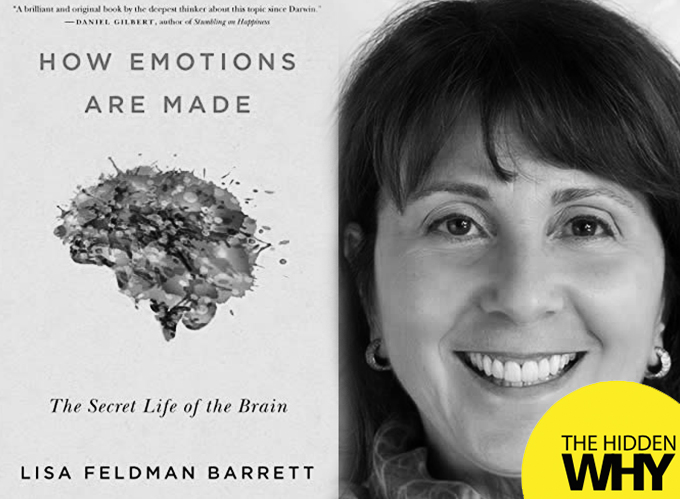

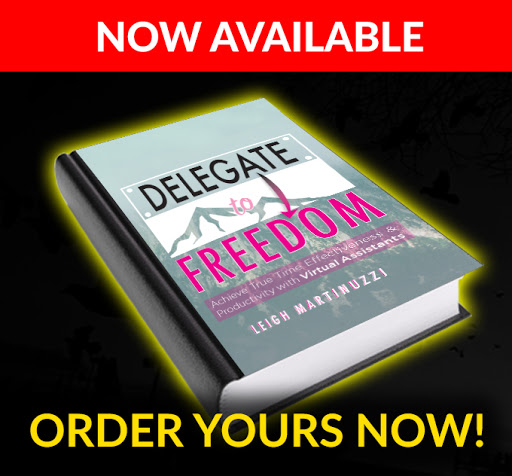
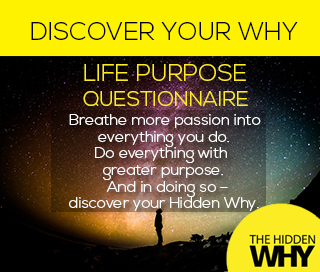



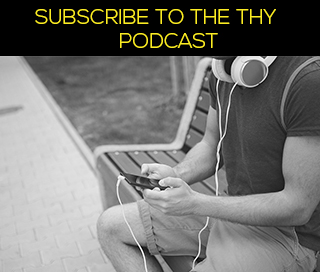
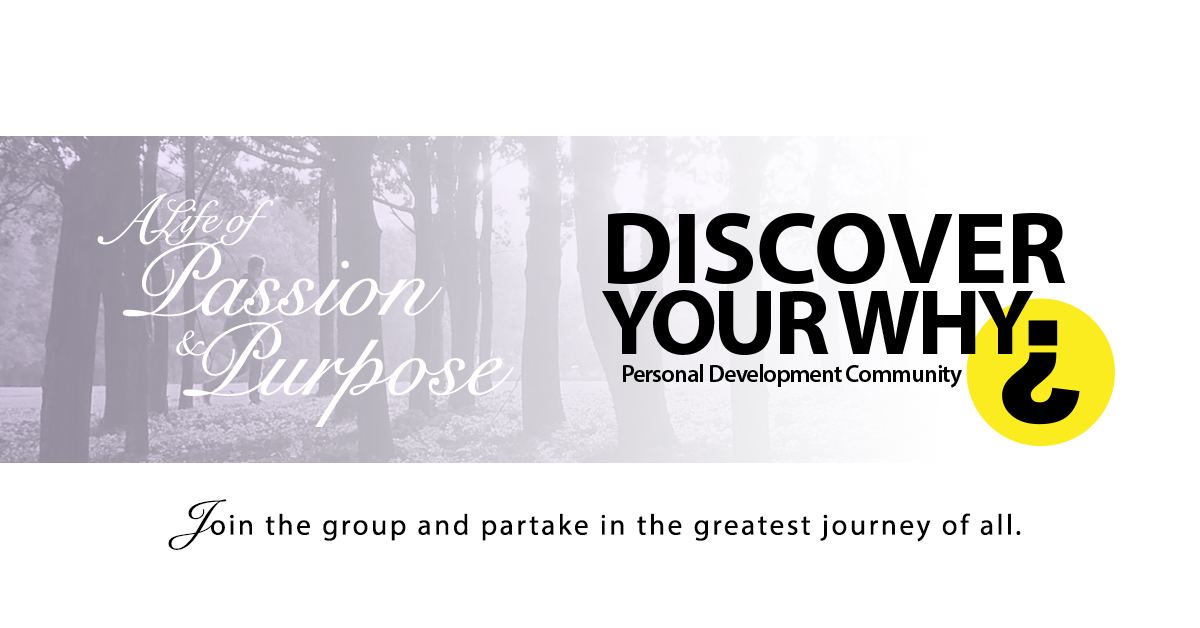
Leave a Reply